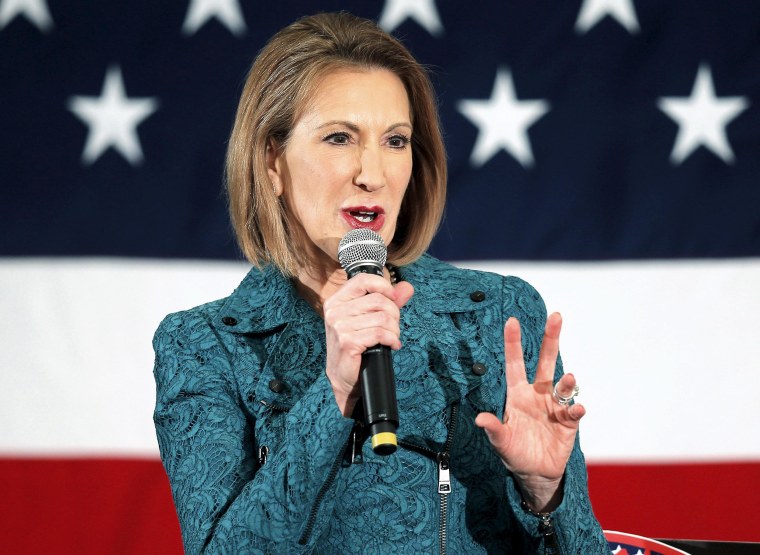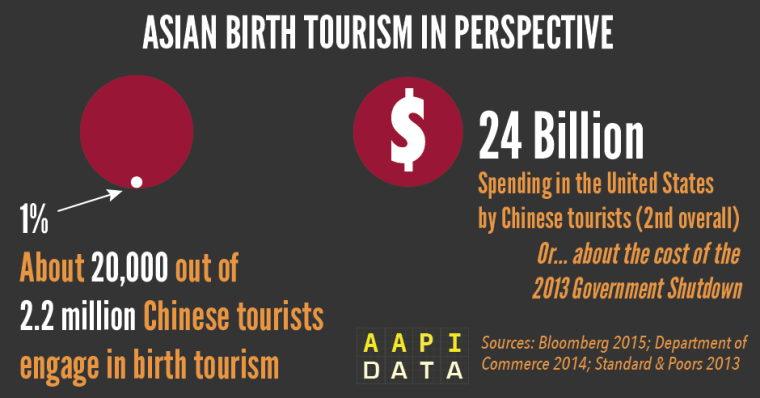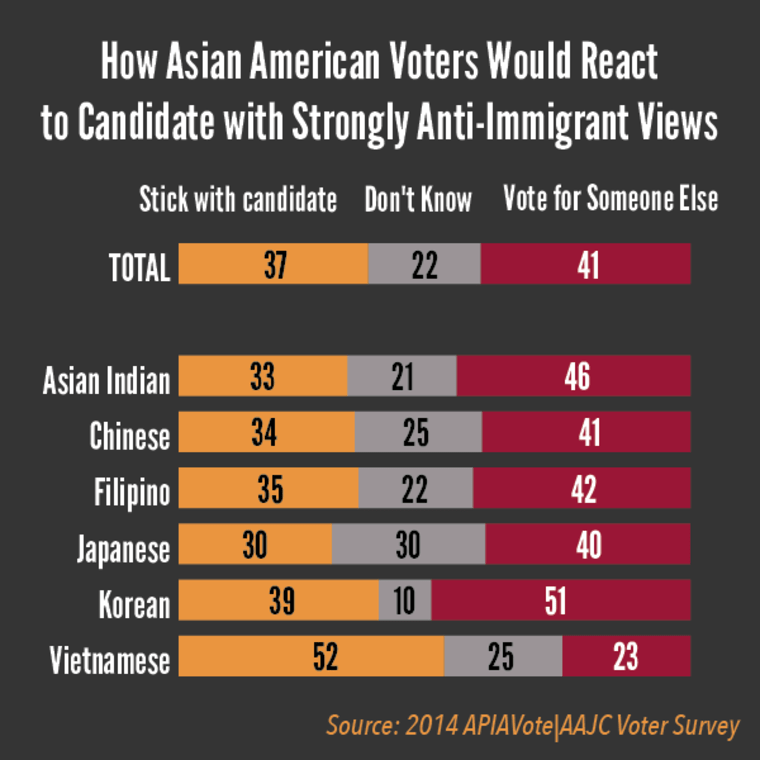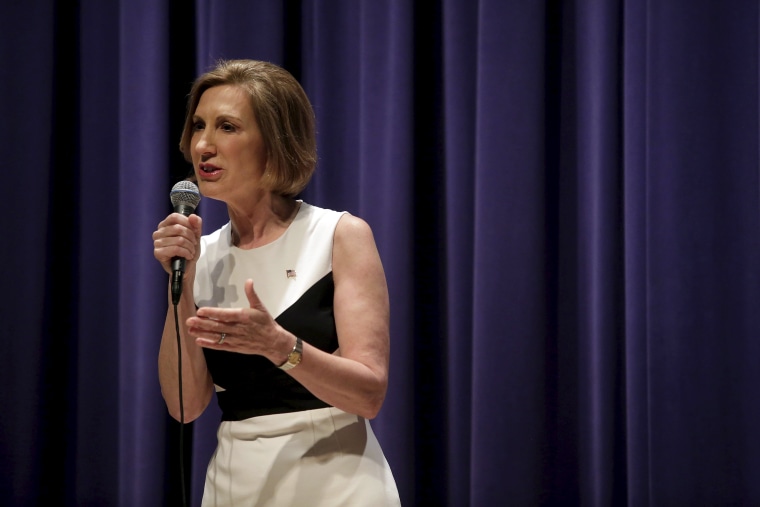After Jeb Bush’s controversial comments last week about how the derogatory term “anchor babies” was “more related to Asian people,” and Donald Trump’s offensive imitation of Asian negotiators with broken English, a third Republican presidential hopeful, Carly Fiorina, has also joined in, calling Chinese maternity tourism a “festering problem.”
"We need to stop abuses like this by enforcing the laws we have," Fiorina said in Iowa last week. "But instead, as unfortunately what happens too often in a political season, everybody tries to distract people from festering problems that have never been solved to talk about something new. Well, let's talk about birthright citizenship. Let's talk about something else. We have to fix these problems. It's ridiculous that women are coming in and doing this. We know it's happening. Let's fix it."

This is not the first time Fiorina has run afoul of the Asian American community. This past January, before she announced her presidential run, she told an Iowa group, “I have been doing business in China for decades, and I will tell you that yeah, the Chinese can take a test, but what they can't do is innovate. They are not terribly imaginative. They're not entrepreneurial, they don't innovate, that is why they are stealing our intellectual property.”
This view is echoed in Fiorina’s book, “Rising to the Challenge: My Leadership Journey,” in which she writes, “Although the Chinese are a gifted people, innovation and entrepreneurship are not their strong suits. Their society, as well as their educational system, is too homogenized and controlled to encourage imagination and risk taking. Americans excel at such things, and we must continue to encourage them.”
Asian Americans are taking note of Fiorina’s comments and other Republican candidates’ use of harmful stereotypes.
“The outrage of Asian Americans helps Fiorina’s cause,” Karthick Ramakrishnan, Professor and Associate Dean of University of California-Riverside School of Public Policy, told NBC News. “Being controversial is consistent with what she’s said about China and innovation and US-China relations.”
However, Ramakrishnan also points out new data that shows although the exact numbers of people engaging in maternity tourism — which is not illegal — is unknown, the most reliable figures estimate it at only 20,000 Chinese women or 36,000 women from around the world each year.

Looking at just the Chinese figures, maternity tourism accounts for 1 percent of the 2.2 million Chinese tourists who come to the United States each year, according to analysis by AAPI Data. However, cracking down on maternity tourism would impact all Chinese tourism, which currently brings in $24 billion of spending a year, and is projected to reach $80 billion by 2020. “This is important because if you are going to expect immigration agents to do much more intensive questioning of all Chinese females of child-bearing age, that will slow down the process a lot and impact tourism,” said Ramakrishnan.
“While making statements like this may help get them attention and name recognition, will it harm their candidacies in the long run and harm the Republican party in general?”
In addition, expressing strong anti-immigrant views may also impact candidates trying to win the fast-growing Asian American vote. According to the APIAVote & Asian Americans Advancing Justice AAJC 2014 Voter Survey, when asked about political candidates with strongly anti-immigrant views, 41 percent of registered Asian American voters indicated that they would vote for someone else, 37 percent said they would still vote for their candidate, and 22 percent said they did not know.

Representative Grace Meng (D-NY) pointed out in a recent conference call that Jeb Bush and other Republican candidates were not following their party’s own guidelines found in a 2012 Republican party analysis and post-election “autopsy” which concluded that in order for the party to “improve their standing with Asian Americans, Hispanic Americans, African Americans — groups they have alienated — the party must emphasize during candidate trainings and retreats the importance of a welcoming and inclusive message.”
“The major issue for all Asian American organizations is that we’ve hardly been discussed in this presidential election, and that this is the way we’re introduced is deeply offensive. It perpetuates stereotypes of Asian Americans as foreigners who commit fraud and intend to do harm to the US,” said Ramakrishnan. “While making statements like this may help get them attention and name recognition, will it harm their candidacies in the long run and harm the Republican party in general?”
Meanwhile, the Republican party has been trying to recruit Asian Americans and Pacific Islanders to its Republican Leadership Initiative, a series of extensive training workshops for grassroots community leaders to work as professional field organizers and community engagers.
